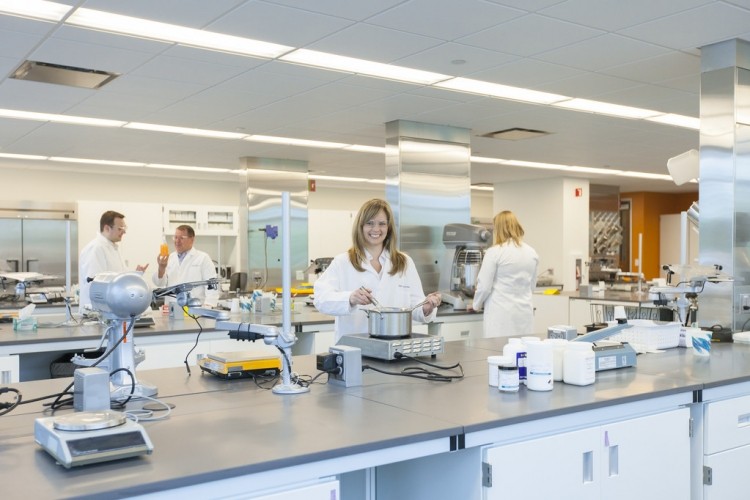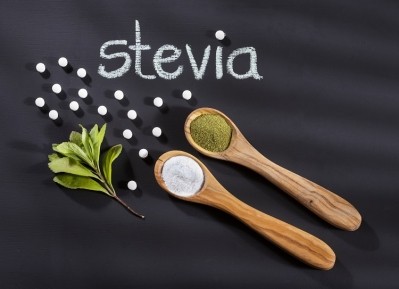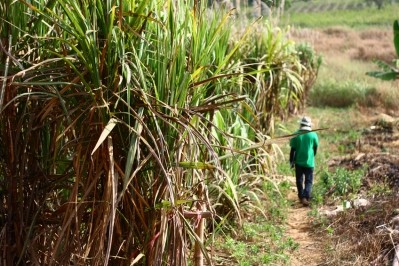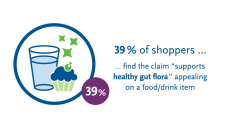Tate & Lyle aims to cut carbon emissions 30% by 2025 as reformulation lifts profits

It also plans a 15% absolute reduction in Scope 3 CO2e emissions (other indirect emissions from its supply chain) by 2020, along with a 15% drop in water use. In addition, it is targeting 100% of its waste to be ‘beneficially’ used in 10 years, with an ambition to reach 75% by 2025.
Tate & Lyle’s commitments:
- 30% absolute reduction in Scope 1 and 2 CO2e emissions by 2030 with an ambition to reach 20% absolute reduction by 2025
- 15% absolute reduction in Scope 3 CO2e emissions by 2030
- Establish Science-Based Targets for Scope 1, 2 and 3 CO2e emissions reductions
- Eliminate coal from our operations by 2025
- Beneficial use of 100% of waste by 2030, with an ambition to reach 75% by 2025
- 15% reduction in water use by 2030
- Maintain sustainable acreage equivalent to the volume of corn we buy globally each year, currently 1.5 million acres, and through partnerships accelerate the adoption of conservation practices
The ingredients supplier said the new targets build on the steps already taken to enhance Tate & Lyle’s sustainability across its entire value chain. For example, in September it announced a sustainable agriculture programme in partnership with Truterra (formerly Land O'Lakes SUSTAIN) to help growers in the US Midwest understand the impact sustainable practices can have on their crops and their profitability, and to adopt them.
To demonstrate its commitment to the new environmental targets, Tate & Lyle has linked the pricing of its US$800 million revolving credit facility, extended in May 2020, to the delivery of its new Scope 1 and 2 CO2e emissions, beneficial waste and water reduction targets.
CEO Nick Hampton said the goals demonstrated how the company’s ‘sense of purpose’ was allowing it ‘to grow our business and make a positive impact on society at the same time’.
“The targets we’ve set out today are an acceleration of the good performance we’ve seen in the last 10 years,” he said. “We’ve reduced our greenhouse gas emission by just over 20% in the last 12 years. We’re committing to another 30% reduction by 2030. Importantly, they are science-based targets that will allow us to align with the goals of the Paris Agreement, so we do our part to deal with the challenges of climate change. Alongside that, we’re committing to support sustainable agriculture in the US, equivalent to all the corn we buy each year and that’s an industry first.”
The company has made other new commitments as part of its sense of purpose. Through its low/no calorie sweeteners and fibres, for instance, it intends to help remove nine million tonnes of sugar from people’s diets, equivalent to 36 trillion calories, by 2025.
Tate & Lyle hit by lockdowns, but food and drink division drives profit boost
The commitments came as Tate & Lyle posted a 2% rise in revenue and 4% increase in profits last year, led by a strong performance in its food and beverage division, which reported a 10% rise in profit, and 5% rise in revenue in 2019.
The strong performance of its food and business divisions helped offset the negative effects of COVID-19 lockdowns in April. Bulk sweetener volume declined 26% due to reduced out-of-home consumption as bars, cinemas, restaurants and sporting events were shut or cancelled. Industrial starch demand dropped 9% due to lower demand for paper and packaging following the closure of schools, offices and a drop in economic activity.
Speaking during a conference call with analysts, Hampton revealed that revenue from sales of products supporting sugar reduction rose 16%. “Our range of clean label performed particularly well with revenue up 51%,” he added. “Revenue for our soluble fibres which allow the amount of sugar in a product to be lowered and provide nutritional benefits such as digestive health and low glycemic response grew by 13%.”
The company’s stevia business also continues to witness strong growth, as it leverages its relationship with Sweet Green Fields, of which it acquired a 15% shareholding in 2018, to boost sales.
“Our stevia solutions continue to grow strongly with sales up 23% from increased consumer demand for reduced sugar and clean-label solutions,” Hampton said. “We have appointed dedicated stevia commercial business development leads in each region as well as a global Stevia General Manager to accelerate growth working closely with our partner, Sweet Green Fields.”
COVID will continue to drive shift towards healthier products
Tate & Lyle has scrapped guidance for this financial year ending 31 March 2021 owing to uncertainty amid the length and extent of the pandemic. However, Hampton told analysts that he expects continued demand for healthier products among consumers, and continued reformulation efforts from food manufacturers.
“Food and beverage solutions continues to benefit from consumers seeking healthier alternatives from their food and drink, particularly to reduce sugar in their diets," he said. “Consumers also continue to look for greater transparency, with cleaner labels and more natural ingredients, and the increase in vegan, vegetarian and flexitarian diets is driving demand for more plant-based options.
“With the onset of COVID-19, food that helps with immunity and digestive health is also increasingly important. Our portfolio of products and expertise all help our customers deliver on these trends.”
He added that as lockdown measures end ‘there’s no doubt there will be an increase in health-consciousness among consumers and that will drive healthier diets’.
“How will that evolve? It will be a combination of calorie and sugar reduction and we’re well placed in that sphere given our balance of fibres, sweeteners, texture and support folio but equally increasingly dietary health will become important so things like added fibre will become important: our added fibre range is critical there. What we’re starting to see is our customers reformulating along those lines.”
He added: “Our high-quality portfolio of products and solutions give consumers healthier and tastier products when they eat and drink. Demand for these products is growing and this trend is here to stay.”























